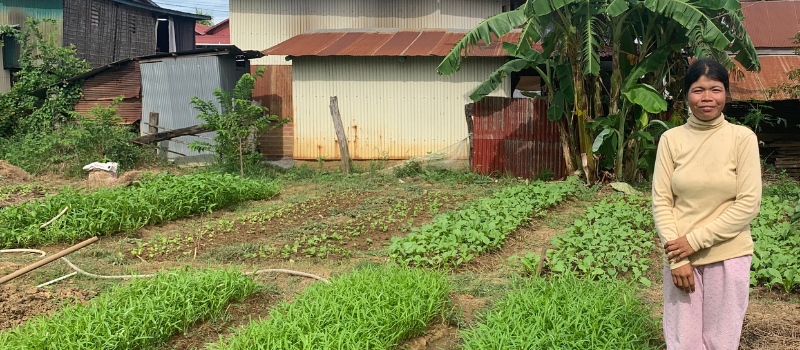This blog was written by Katia Major, Senior Program Manager at VWB, reflecting on a September 2025 field visit to Cambodia to strengthen partnerships and observe the impacts of our AGROW and VETS programs. Her observations highlight how climate-smart agriculture is improving farmer livelihoods and fostering community resilience.
Meeting San Davy
It’s the start of the Pchum Ben festival in Cambodia, and there’s excitement in the air. As we step out of the car into the heavy humidity of the rainy season, the distant chants of monks drift from a nearby pagoda. We are greeted by San Davy, a resident of Battambang province. Her gentle manner and easy smile are immediately apparent.
In 2022, San Davy was selected to take part in the AGROW project—a three-year initiative designed to enhance the resilience of women and girls through a One Health approach, strengthening animal, human, and environmental health. The project supported sustainable agriculture, improved nutrition, and fostered economic security through green agriculture and livestock-based production, including crickets, chickens, and cattle.
Now, nine months after the program’s completion, we’ve returned with our donor, Global Affairs Canada (GAC), to see how her life has changed. The results are remarkable.
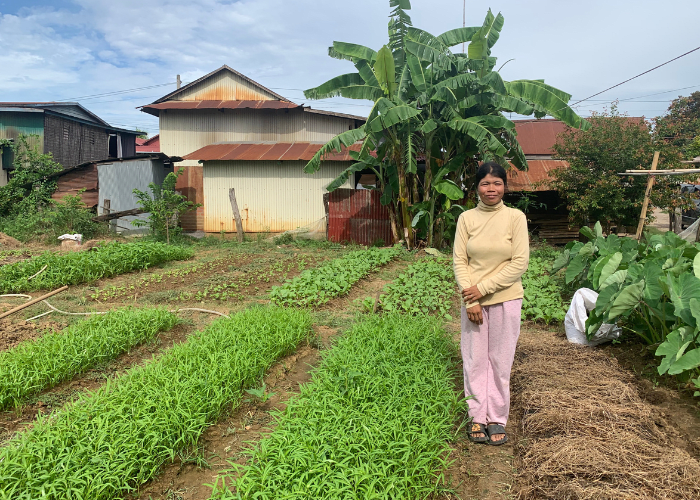 PHOTO: San Davy in her flourishing vegetable gardens at her homestead in Battambang.
PHOTO: San Davy in her flourishing vegetable gardens at her homestead in Battambang.
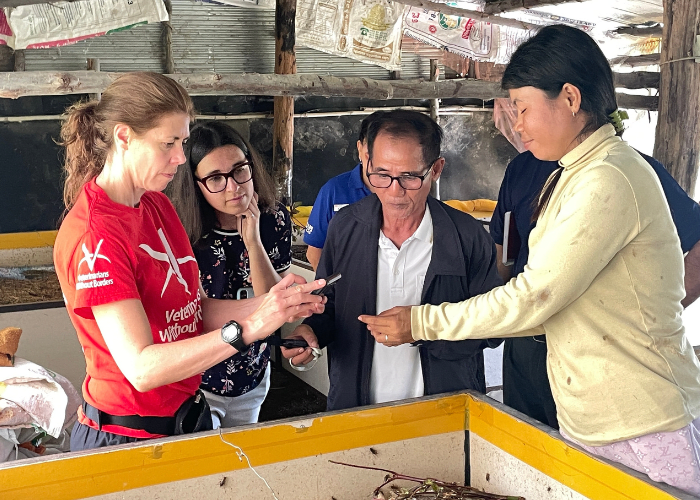 PHOTO: San Davy shows her crickets to Katia (L), Vicky Leclair (GAC), and our partners.
PHOTO: San Davy shows her crickets to Katia (L), Vicky Leclair (GAC), and our partners.
From Laundry to Livelihood
“When the project first started, I was given two bins in which to raise crickets. I have now grown my cricket farm to 15 bins,” she says proudly.
The transformation is visible in every part of her life. Her daughter, 7, and son, 15, now attend school full time and no longer need to migrate to Thailand with their mother for seasonal work. Before AGROW, her income was irregular and meagre. “I used to do laundry and earn 50 cents a day—sometimes nothing if there was no laundry.”
Today, she earns about $250 USD per month from cricket farming. As a single, illiterate mother supporting two children, her parents, and grandparents, this self-sustaining income has been life-changing.
“My daughter is doing very well at school, and our hope is that she will one day go to university and study medicine—a dream that was never previously possible.”
Women’s Groups: Building Strength Together
We later meet Mrs. Ho Penh, another member of the 48 women’s groups created through AGROW. These groups received training in governance, finance, and microloan management. Even after the project’s close, they continue to meet monthly, share best practices, and provide small loans to help other farmers start businesses.
San Davy now hosts her group on her farm, which also serves as a One Health demonstration site showcasing climate-smart farming, insect production, and livestock management.
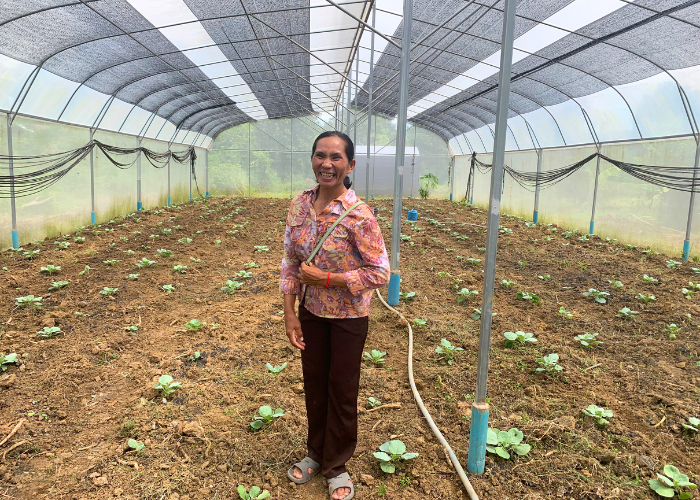 PHOTO: Mrs. Ho Penh inside the One Health Demo site on her farm.
PHOTO: Mrs. Ho Penh inside the One Health Demo site on her farm.
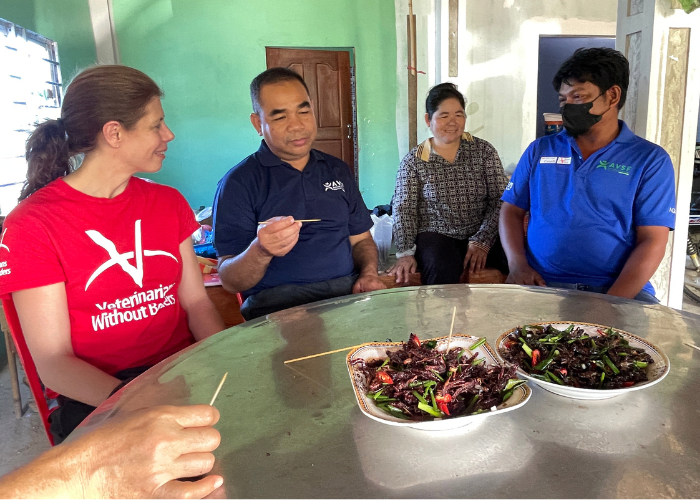 PHOTO: Katia (L) shares a meal of fried crickets and vegetables with AVSF partner staff.
PHOTO: Katia (L) shares a meal of fried crickets and vegetables with AVSF partner staff.
Crickets: A Growing Market
“Crickets are in big demand.” This is the first thing we hear from Mr. Min Nguon, a local cricket buyer. He purchases directly from the women’s groups, knowing he can rely on their freshness and quality. Thanks to their collective bargaining power, farmers can secure a guaranteed price of $2.50 per kilogram, while Mr. Min sells prepared crickets for $3.75 at the market—selling out daily.
His thriving business now supports his extended family, who no longer migrate for low-wage seasonal work. His wife prepares the crickets with her sell-out recipe of chillies, kaffir lime leaves, green onion, and salt. “Crunchy and flavourful,” he says with a smile.
His only complaint? There aren’t enough crickets to meet demand. One day, he dreams of processing crickets into powder for export.
Volunteers: Building Local Capacity
The success of AGROW was possible thanks to the VETS volunteers who built capacity with partners AVSF Cambodia and Agriculture Development Action (ADA).
One Health volunteers, Christine and Ines, developed a demonstration site manual used to train farmers like San Davy in integrated practices that improved animal welfare, soil health, and nutrition. Volunteer Value Chain Advisor, Jim, worked with AVSF on a gender-responsive analysis of local markets. From this, they developed and implemented an action plan that strengthened women’s participation and leadership in the value chain.
As Kimsan Bun, Executive Director of ADA, put it: “We are so grateful to GAC and VWB for supporting such a successful initiative that has transformed the lives of women in our community. It brings us joy and pride to see them leading lives that have lifted them out of poverty.”
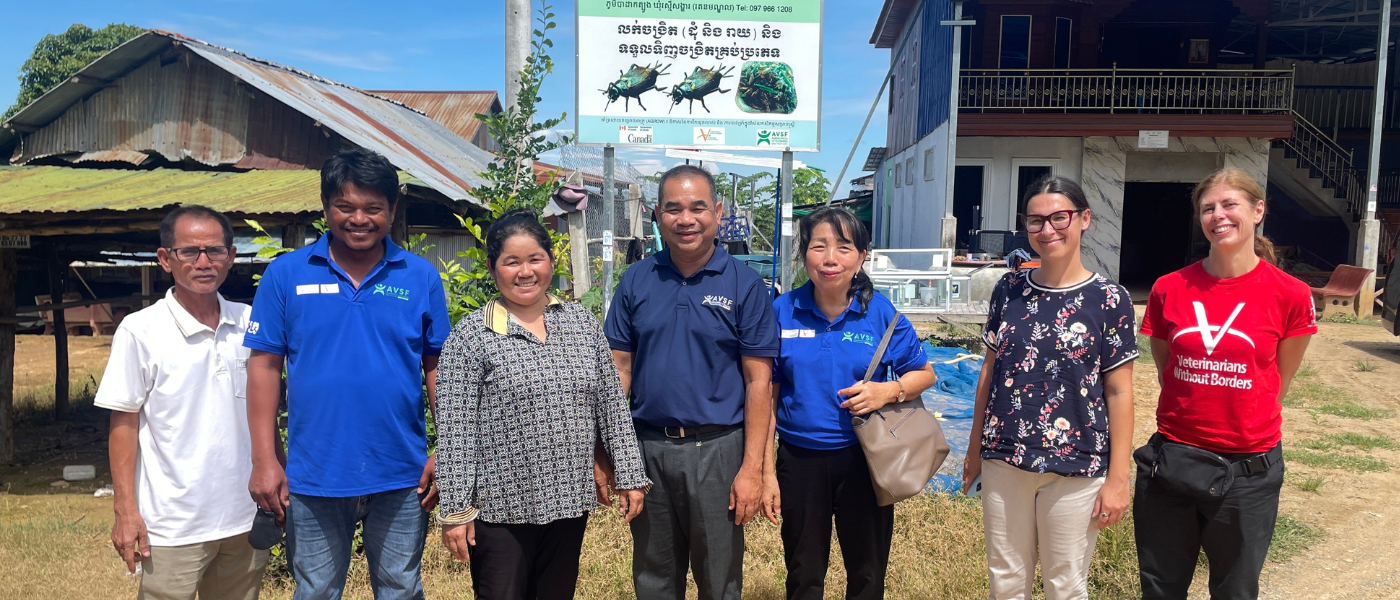 PHOTO: Katia (R) with AGROW partners and donor, including Sophoan Min (AVSF, center), Kimsan Bun (ADA, 3rd right), and Vicky Leclair (GAC, 2nd right).
PHOTO: Katia (R) with AGROW partners and donor, including Sophoan Min (AVSF, center), Kimsan Bun (ADA, 3rd right), and Vicky Leclair (GAC, 2nd right).
Transforming Lives, Strengthening Communities
As our visit with San Davy draws to a close, she humbly asks when the project will begin again, so that more of her community can benefit.
The impact of initiatives like AGROW and VETS is clear: tangible, sustainable, and life-changing. Through an integrated One Health approach, families have improved their health, strengthened their livelihoods, and built resilience. Women are leading the way, creating futures where dignity and independence replace poverty and uncertainty.
These stories remind us why continued investment in such initiatives is vital: to build stronger, more resilient communities, where women and their families can thrive.
About AGROW: From 2022 to 2024, VWB implemented the AGROW program in Cambodia’s Battambang Province. Funded by Global Affairs Canada and delivered in collaboration with local partners, the program empowered women farmers, strengthened community food systems, and promoted sustainable livelihoods through a One Health lens. Learn more.
About VETS: VETS is an 8-year initiative (2020-2028) to improve the economic and social well-being of marginalized people, particularly women and girls, in 6 countries across Africa and Asia. In collaboration with local partners, the program is implemented through 190 Canadian volunteers on international assignment and is generously funded by Global Affairs Canada. Learn more.
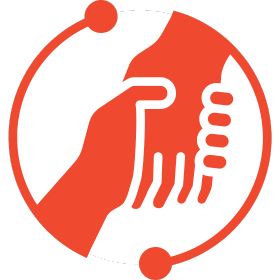 Join us in building climate-resilient communities and advancing women’s leadership in agriculture. Equal access to resources strengthens families, food systems, and futures. Donate, volunteer, or subscribe to support programs that create lasting change through sustainable farming, animal health, and One Health solutions.
Join us in building climate-resilient communities and advancing women’s leadership in agriculture. Equal access to resources strengthens families, food systems, and futures. Donate, volunteer, or subscribe to support programs that create lasting change through sustainable farming, animal health, and One Health solutions.

